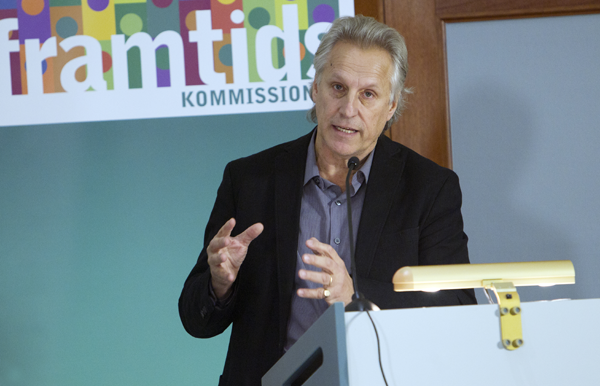NewsVoice. Författaren och journalisten Micahel Booth beskrev nyligen Sverige som en kackotopi i artikeln ”Dark lands: the grim truth behind the Scandinavian miracle”. Han gav hela Skandinavien en känga. Nu har länderna besvarat kritiken i artikeln ”The grim truth behind the Scandinavian miracle – the nations respond”.
Text: Lars Trädgårdh | NewsVoice fick tillstånd att återpublicera det svenska svaret, inskickat till The Guardian av historieprofessor Lars Trädgårdh.
The Nordic model has long served as a rhetorical batting ball in other countries. One moment held up as utopia; the next unmasked as a totalitarian hell. The founding father of the latter trope was Eisenhower, who declared that Sweden followed ”socialist philosophy and whose rate of suicide has gone up almost unbelievably. Drunkeness has gone up. Lack of ambition is discernible on all sides.” Michael Booth’s lament sits firmly within this narrative.
There is no ”totalitarian” conspiracy to sever bonds between family members, as Booth argued. But modern Sweden is infused by a moral logic that seeks to balance the deep existential desire for individual freedom and social cohesion. It has been promoted through the democratic state via laws and policies that have freed individuals from unequal and patriarchal forms of community, including the traditional family, charities, and the churches. We are talking free choice, not coercion.
This social compact is not everyone’s cup of tea. If one harbours deep suspicion of the state, prefers traditional gender roles and dislikes children’s rights, then Sweden is indeed a place to avoid. But make no mistake: while Swedes may look extreme in their embrace of individual autonomy, the general trend is the same all over the world.
More troubling is the enduring commitment to a national welfare state that is de facto limited to citizens and legal residents. In an age of migration and globalisation this brings to the fore a potent conflict between rights of citizens and human rights. It constitutes a deep challenge to democracy as we know it. And Swedes are currently no more successful in handling this than anyone else.
Text: Lars Trädgårdh

 NewsVoice är en oberoende nättidning med utgivningsbevis som startade 2011. Syftet är att publicera nyheter, debattartiklar, kommentarer och analyser.
NewsVoice är en oberoende nättidning med utgivningsbevis som startade 2011. Syftet är att publicera nyheter, debattartiklar, kommentarer och analyser. 